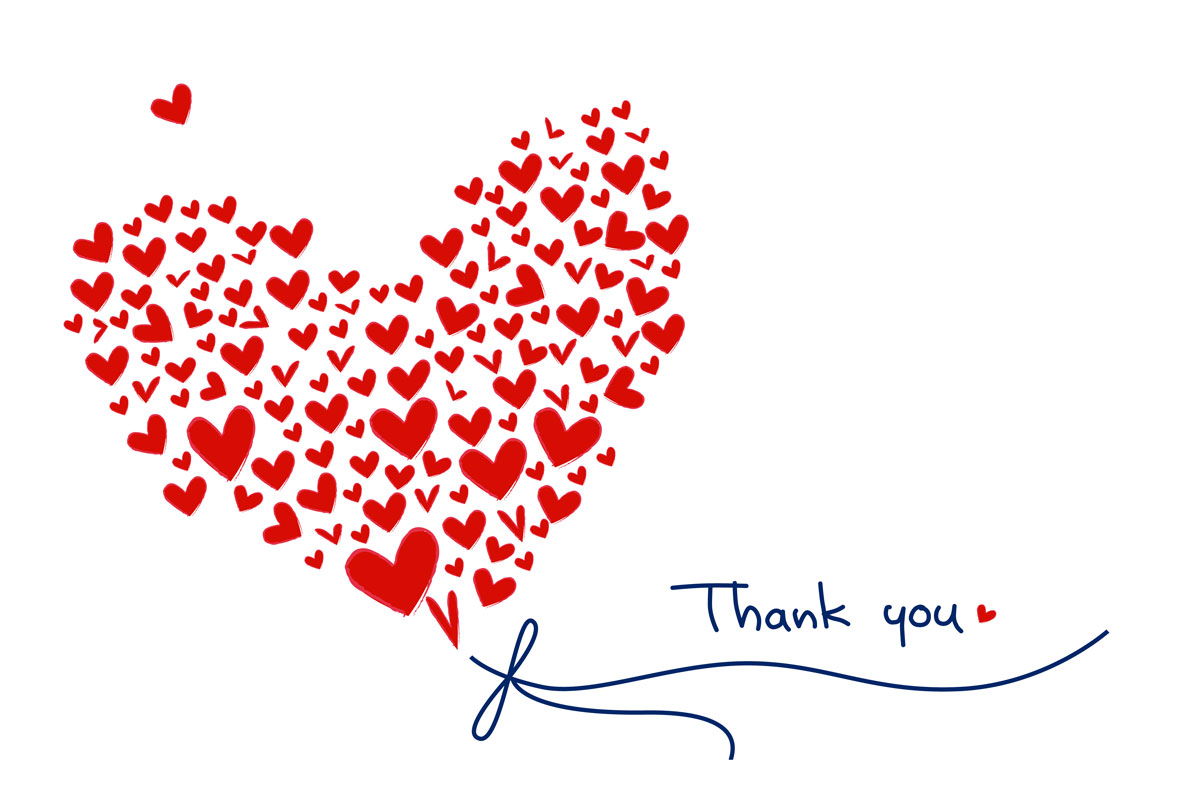
The Healing Power of Gratitude
One of the first things we learn to say as children is “thank you.” It’s often the first thing we learn in another language when visiting a foreign country. These two little words are a simple expression of appreciation, but they mean so much – to relationships, health and well-being, and even the evolution of humankind.
“You scratch my back; I’ll scratch yours” is a mutual, and often unspoken, arrangement whereby humans (and some other animals) survive and thrive. Robert Trivers’ theory of reciprocal altruism proposes that gratitude is our reaction to charitable acts by others and inspires us to “repay” them with similar benevolent deeds.
Another manifestation of gratitude is “paying it forward” – or “upstream reciprocity” – whereby someone extends an act of kindness to a third party because someone was kind to them.
Interestingly, according to anthropologists and linguists, the strong emphasis placed on expressions of thanks is more prevalent in western, English-speaking areas than other parts of the world. While it may be true that not everyone everywhere is constantly saying “thank you,” one thing is for sure: being thankful and showing signs of gratitude is universally beneficial.
Benefits of Gratitude
- Mood boost. Giving thanks lifts our spirits because it puts the attention on the good in our lives instead of the bad – what we have, rather than what we lack.
- Connection to something larger. Whether it’s other people, nature or a higher power, gratitude helps us focus on something beyond ourselves.
- Stronger relationships. It only makes sense that mutual acts of kindness and expressing appreciation would strengthen social connections. (Curiously, research has found that this is less the case with people who are related to one another, supporting theories that gratitude is most important in forming new relationships.)
- Better physical and psychological health. Grateful people have been found to exercise more, have fewer visits to the doctor, sleep better, have fewer aches and pains, exhibit less aggression, feel less angry, and experience less stress, depression and anxiety.
- Motivation to achieve more. Did you ever notice how a compliment or word of appreciation, especially from a person of authority, drives us to work harder or rise to an even higher standard? That’s the power of a “simple thank you.”
- Shows emotional maturity and availability. Studies have found that children are not particularly capable of feeling or expressing gratitude. Developing and articulating a sense of appreciation is the bailiwick of mature people capable of forming relationships based on mutual benefit, not selfish needs or demands.
While it is all too easy – especially in times of trouble – to harp on the negative…what we don’t have…what we wish things were, it is infinitely healthier to be grateful. A study out of Harvard Medical School suggests cultivating gratitude by writing a thank you note, thinking about someone who’s helped us, keeping a gratitude journal, literally counting our blessings, praying and/or meditating.
Residents at Eastcastle Place have taken it a step further and created a newsletter called Your Neighborhood Castle Connections: Written by You for You. This resident-driven publication is full of uplifting quotes, comments, observations, and expressions of appreciation for our community, staff and one another.
Our wise seniors know that tough times can be weathered, brighter days are ahead, and there is still so much for which to be grateful.
We thank them for that!

